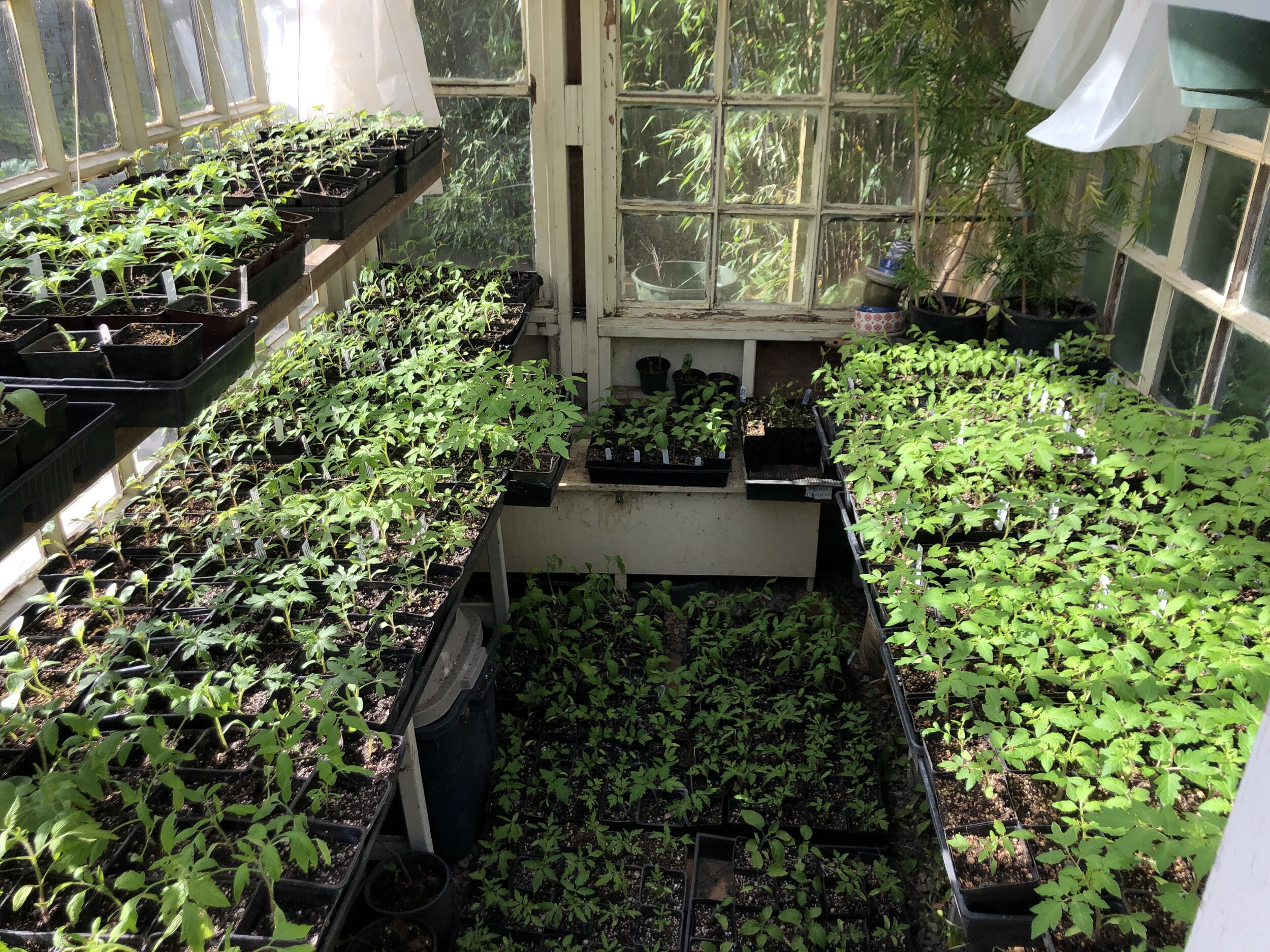
How Our Plants & Seeds Are Grown
Thanks for checking out our Plant Nursery and Seed Store! Here is some information on the growing conditions of our plants and seeds.
First off, none of the plants or seeds are treated with neonicotinoid chemicals.
Those are the pesticides that are highly toxic to bees, and are systemic, meaning the plant takes them up into their system and they are in the leaves, pollen and nectar of the plant for some time (weeks to years). That means if you buy a bee-friendly flower at a store, say a lavender plant, and take it home to your garden, it could have a negative impact on bees that come to your yard. Wherever you buy plants, ask if they are treated with neonics, because consumer awareness and demand for untreated plant will help the industry shift. Big box retailers have been ignoring this issue, but even most independent nurseries are dragging their feet. The Oregon Association of Nurseries director testified to a congressional subcommittee last year, to paraphrase: the science is not in on neonics and we can’t have our tools [pesticides] taken away from us. The science, according to The Xerces Society and many other groups actually is in, and it’s clear that pesticides are hurting our pollinators which is threatening our food security. Our pollinators are in crisis, both honey bees and our valuable native pollinators, so this is important!
So, back to our plants and seeds: they are Neonic-Free!
Our plants are safe for bees and are non-GMO.
Furthermore, the seeds are all open-pollinated (not hybrid, you can save them yourself) and all the plants and seeds are non-GMO.
Certified Salmon-Safe means the grower limits use of chemicals (or is organic), manages runoff on their farm to restore water quality and has provided habitat for beneficial insects and wildlife. There are six focus areas to the certification: riparian area management, water use management, erosion and sediment control, integrated pest management, animal management, and biodiversity conservation. For the nursery where the fruit trees and many of the berries were grown, it means conserving water by using drip irrigation and mulching crops, preventing erosion by using cover crops between nursery rows and on fallow fields, for using natural methods to control weeds and pests and for maintaining at least 50 foot setbacks from streams, providing a vegetated, riparian buffer zone.
“Salmon-Safe is an independent nonprofit organization based in the Northwest that is devoted to restoring agricultural and urban watersheds so that salmon can spawn and thrive.”
Sustainably Grown grown plants are from responsible growers who use integrated pest management systems, no neonic pesticide use and conscientious use of water and other natural resources.
Organic plants are produced without the use of any pesticides or chemical fertilizers. The plants and seeds marked organic are all grown on Mulysa Melco’s urban homestead in Overlook neighborhood. Many of the seeds are saved from year to year in her garden.

